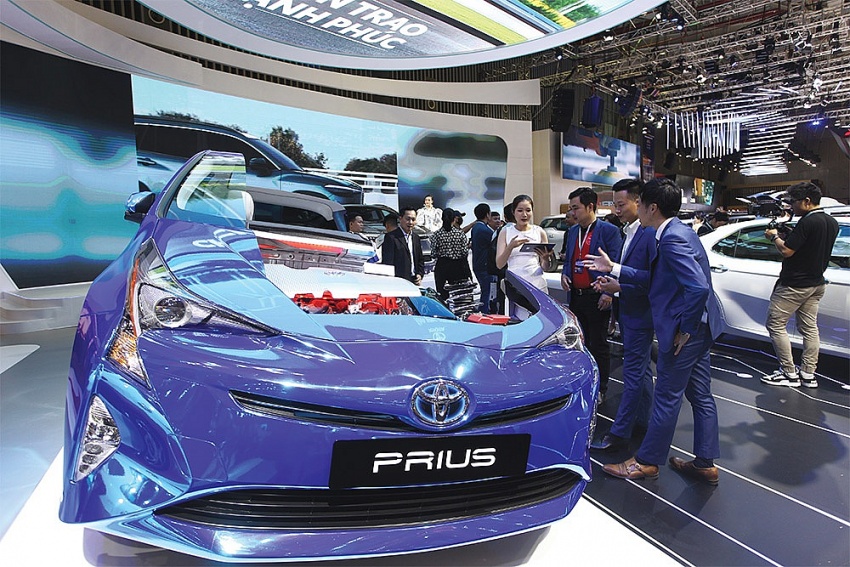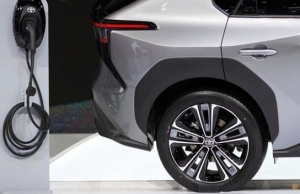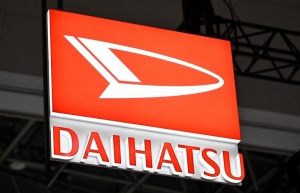Data scandal threatens wider impact
Shares of Japanese carmakers plunged after the country’s Ministry of Land, Infrastructure, Transport and Tourism found false data used to certify certain models earlier in June.
 |
The stock of Japan’s largest carmaker, Toyota, fell more than 5.4 per cent after the scandal broke on June 3, but began to recover afterwards. The company lost $15.62 billion in market value in the week of the revelation alone.
Shares of Mazda, the country’s second-largest carmaker, dropped 7.7 per cent in the same period.
The inspection by Japan’s Ministry of Land, Infrastructure, Transport and Tourism also found irregularities in certification applications by Honda, Suzuki, and Yamaha.
Toyota had apologised for falsifying information on certification exams for seven different models.
The model certification applications in question involve inadequate data in pedestrian and occupant protection tests for three production models – the Corolla Fielder, Axio, and Yaris Cross – and errors in crash tests and other test methods for four discontinued models.
In an announcement from Toyota Motor Corporation on June 3, it said the company had taken action to temporarily halt shipments and sales of three models currently produced in Japan.
“We sincerely apologise for any concern or inconvenience this may cause to our customers and stakeholders who have placed their trust in Toyota. We take it seriously that the problem was discovered at Toyota following the recent discovery of certification issues at Hino Motors, Daihatsu Motors, and Toyota Industries Corporation,” the corporation said.
The latest revelations came after the ministry requested carmakers in January to investigate certification applications following a safety test scandal at Toyota’s Daihatsu compact car unit that emerged last year.
Toyota Motor Vietnam rushed to clarify that the unfolding events would not have a bearing in Vietnam. “Based on more detailed information from Toyota Motor Corporation, although having the same commercial name as the Yaris Cross, the model is completely different from the Yaris Cross model currently distributed by Toyota Vietnam,” it said in a statement.
The unfurling testing scandal that has embroiled five Japanese automotive giants reflects outmoded certification practices dating back around 70 years, according to The Strait Times.
Many of these irregularities were based on in-house tests conducted during production and are said to be at stricter conditions than required, with retesting at government standards not carried out, given time pressures and the sheer complexity. The companies were also said to have “different interpretations” of the national certification system, it reported.
Nevertheless, the vehicles are deemed safe to drive and that the key issue of safety was never woefully compromised, analysts said. No problems have yet been found in the deviating testing processes for the 38 affected vehicle models, of which 32 are no longer in production.
Fitch Ratings Japan industry analyst and senior director Satoru Aoyama told The Straits Times, “The non-compliance is a serious issue and cannot be justified,” he stressed. “But at the same time, the certification process has never really been updated to reflect the evolution of the automotive industry, and has become a bottleneck in product development.”
Meanwhile, Japan’s Ministry of Land, Infrastructure, Transport and Tourism concluded that the six cases of misconduct by Toyota related to vehicle certification may violate not only domestic standards but also United Nations vehicle regulations, according to Japan News.
The UN vehicle regulations are international safety and environmental standards adopted by 62 countries and regions, including Japan, South Korea, and Europe.
Given that Japan’s domestic regulations for cars align with those of the UN, the irregularities are likely to result in manufacturers being barred from mass-producing the vehicles involved in the scandal in Europe and elsewhere, noted Inquirer.net.
According to the Vietnam Automobile Manufacturers’ Association, Toyota continues to hold the top position with sales in Vietnam in May reaching 5,356 vehicles, an increase of 19 per cent compared to April. Ranked second is Hyundai with 4,914 vehicles, followed by Ford, Mitsubishi, Kia, Mazda, and Honda.
There is fierce competition between car manufacturers to gain market share in Vietnam. Leading enterprises just a few short years ago, such as Toyota and Honda, recorded a decrease in market share in 2023 while names like Ford, Kia, Mazda, and Mitsubishi grew thanks to better pricing strategies.
In addition, Chinese automakers are bringing more brands into Vietnam such as Lynk&Co, Haima, and MG, while Wuling and Chery have been opening assembly factories.
 | Japanese automakers to invest 4.3 bln USD in Thailand The Thai Government announced on December 25 that four major Japanese automakers will invest 150 billion THB (4.34 billion USD) in Thailand over the next five years. |
 | Toyota's Daihatsu suspends all domestic production Japanese car maker Daihatsu has suspended all its domestic production as the Toyota-owned company faces a massive safety testing scandal. |
 | Toyota suspends shipments of 10 models on testing irregularities Toyota said Monday it was suspending shipments of 10 models that use engines linked with testing irregularities at an affiliate company. |
 | Toyota to invest $2.2 bn in Brazil hybrid production Japanese auto giant Toyota said Wednesday that it plans to invest 11 billion reais ($2.2 billion) in beefing up production of hybrid vehicles in Brazil through 2030. |
What the stars mean:
★ Poor ★ ★ Promising ★★★ Good ★★★★ Very good ★★★★★ Exceptional
 Tag:
Tag:
Related Contents
Latest News
More News
- Kurz Vietnam expands Gia Lai factory (February 27, 2026 | 16:37)
- SK Innovation-led consortium wins $2.3 billion LNG project in Nghe An (February 25, 2026 | 07:56)
- THACO opens $70 million manufacturing complex in Danang (February 25, 2026 | 07:54)
- Phu Quoc International Airport expansion approved to meet rising demand (February 24, 2026 | 10:00)
- Bac Giang International Logistics Centre faces land clearance barrier (February 24, 2026 | 08:00)
- Bright prospects abound in European investment (February 19, 2026 | 20:27)
- Internal strengths attest to commitment to progress (February 19, 2026 | 20:13)
- Vietnam, New Zealand seek level-up in ties (February 19, 2026 | 18:06)
- Untapped potential in relations with Indonesia (February 19, 2026 | 17:56)
- German strengths match Vietnamese aspirations (February 19, 2026 | 17:40)






















 Mobile Version
Mobile Version